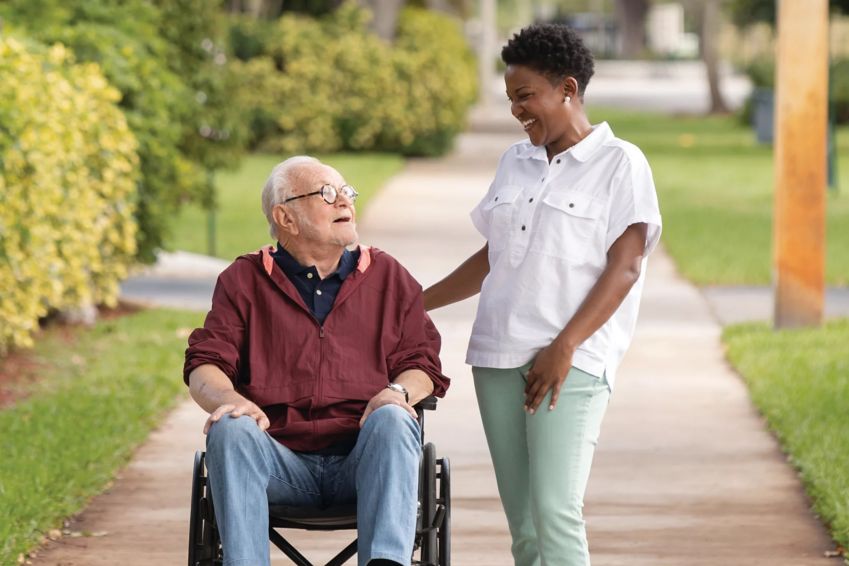Medicare Part B (Medical insurance) covers
Let’s explore how Medicare can help cover wheelchairs.
6-minute readPublished 03/28/2024Updated 10:07 AM EST, 02/20/2025

Medicare Part B (Medical insurance) covers
Let’s explore how Medicare can help cover wheelchairs.
If you meet these requirements, there are 3 main types of wheelchairs Medicare helps cover.1
Medicare Advantage plans help expand your Medicare coverage beyond Original Medicare, often with extra benefits. Explore Humana’s Medicare Advantage plans in your area today!
6-minute readPublished 03/28/2024Updated 10:07 AM EST, 02/20/2025
A manual wheelchair is propelled by the user by pushing on round bars that surround the wheels. You may qualify for a manual wheelchair if you can’t use a cane or walker safely but have enough upper body strength (or someone to help you).
A power scooter is an electric vehicle that is built more like a motor scooter than a wheelchair. You may qualify for a power-operated scooter if you don’t have the strength to use a cane or walker or can’t operate a manual wheelchair. You must be able to get in and out of a power scooter safely and strong enough to sit up and operate the controls.
A power wheelchair consists of a seat, arm rests with controls and an electric motor. You may qualify for a power wheelchair if you can’t use a manual wheelchair or don’t qualify for a power-operated scooter. Before you get a power wheelchair, you must have a face-to-face exam with your doctor. If your doctor determines you can safely operate a power wheelchair, they’ll submit a written order to Medicare.
Here are some common steps to get a wheelchair from Medicare:
After you pay your Part B deductible for the year, Medicare pays 80% of the approved amount. You pay the other 20%.1
Medicare may deny your request if they believe you don’t medically require a wheelchair or you didn’t submit the correct information. If Medicare denies your request, you have the right to appeal that decision.
Here are the steps to file an appeal to Medicare:2
You may need to get pre-approval (known as “prior authorization”) for
A Medicare Supplement (Medigap) plan may help cover the out-of-pocket costs for your wheelchair, such as Medicare deductibles and copays. You may have to pay an additional premium for a Medicare Supplement insurance plan.
Medicare gives you a choice to rent or buy certain items, including most wheelchairs. For more expensive equipment like wheelchairs, Medicare will pay to rent the item for 13 months of continuous use. Part B covers 80% of the cost of a monthly rental fee for 13 months and you pay a 20% coinsurance. After the 13th month of rental ends, the supplier must transfer ownership of the wheelchair to you.4
6-minute readPublished 03/28/2024Updated 10:07 AM EST, 02/20/2025